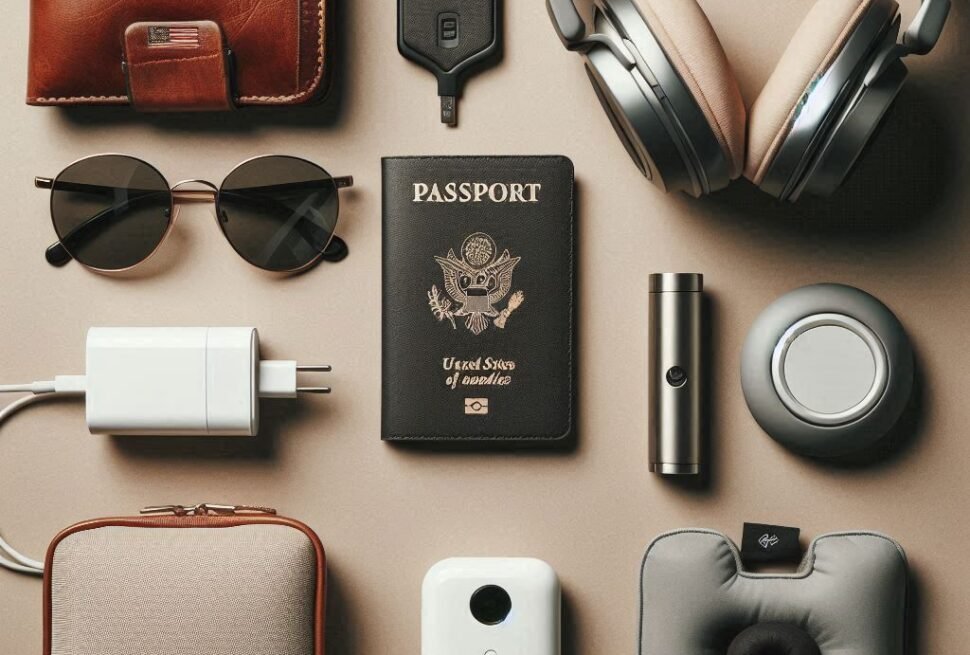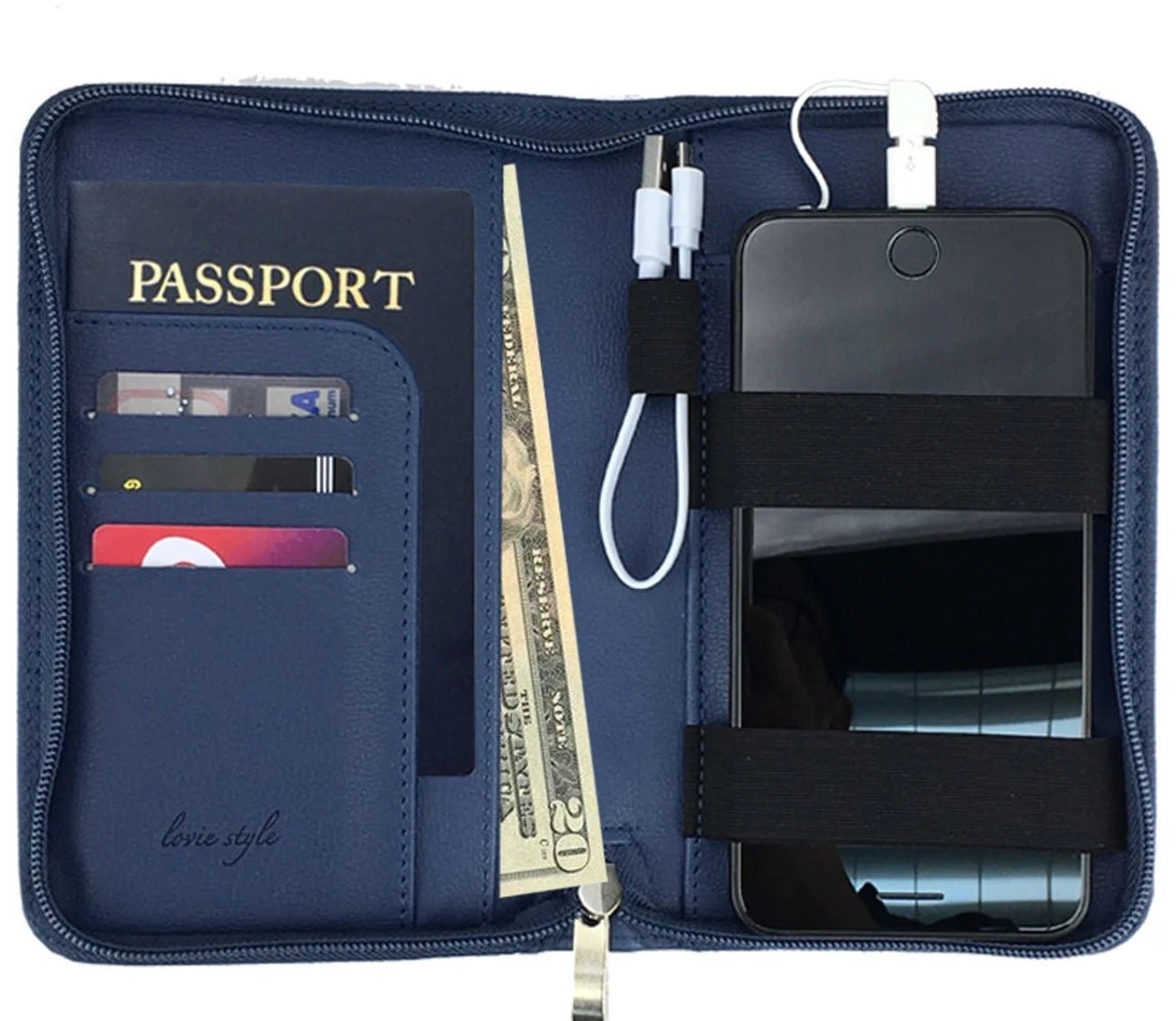Losing your wallet is one of those frustrating moments we all hope to avoid, especially when we travelling, but it happens more often than we’d like to admit. Whether it’s left behind at a restaurant or slipped out of your pocket, the panic that follows can be overwhelming. This is where a wallet tracker comes in handy. A wallet tracker is a small device that helps you keep track of your wallet’s location, offering peace of mind when you’re on the go.
With a wallet tracker, you can quickly find your wallet through a smartphone app, saving you from the stress of retracing your steps. No more wasted time turning your house upside down or worrying about sensitive items like credit cards or IDs falling into the wrong hands. It’s a simple yet effective solution that makes losing your wallet a thing of the past.
What is a Wallet Tracker?
A wallet tracker is a small, lightweight device designed to help you find your wallet when it goes missing. Whether you left it at a friend’s house or it slipped between the couch cushions, a wallet tracker makes it easy to track down. Most wallet trackers connect to your smartphone via Bluetooth or GPS, allowing you to see where your wallet is through an app.
Bluetooth wallet trackers are the most common type. They work by staying connected to your phone within a certain range—usually around 200-400 feet. If your wallet goes missing within that range, you can make the tracker ring so you can locate it. GPS-enabled wallet trackers, on the other hand, give you more flexibility by letting you track your wallet even if it’s far away, using GPS satellites to pinpoint its location.
The best wallet trackers often include additional features like separation alerts, which notify you if you leave your wallet behind, and crowd-sourced tracking, where other users of the same tracker network can help you find your lost wallet if it’s out of your Bluetooth range. These options can make all the difference in choosing the right wallet tracker for your needs.
Types of Wallet Trackers
When it comes to wallet trackers, there are a few different types to consider. Each type has its own strengths, depending on how and where you might misplace your wallet. Let’s break down the most common ones and weigh the pros and cons.
Bluetooth Wallet Trackers
Bluetooth wallet trackers are the most widely used. These trackers connect to your phone via Bluetooth and work within a specific range, usually about 200-400 feet. If your wallet is within that range, you can trigger a sound from the tracker to help you find it.
- Pros: Easy to set up, affordable, and widely available. Great for finding your wallet around the house or in close proximity.
- Cons: Limited range, so they won’t be useful if your wallet is lost far away or stolen.
GPS-Enabled Wallet Trackers
GPS-enabled trackers use satellites to track your wallet’s location no matter how far it is from you. This type is ideal for people who often travel or are prone to losing their wallet in unfamiliar places.
- Pros: Offers long-range tracking, sometimes even across countries. You can locate your wallet almost anywhere.
- Cons: More expensive than Bluetooth options and often requires a subscription for GPS services.
Wallet Trackers with Geofencing or Crowd-Sourced Networks
Some advanced wallet trackers come with geofencing features, which alert you if you move too far away from your wallet. There are also crowd-sourced networks, where other users of the same tracker brand can help you find your wallet if it’s lost outside of your Bluetooth range.
- Pros: Geofencing can prevent you from losing your wallet in the first place. Crowd-sourced networks expand your search range with the help of others.
- Cons: Geofencing may lead to false alarms, and crowd-sourced networks rely on having enough users nearby to be effective.
Top 4 Best Wallet Trackers
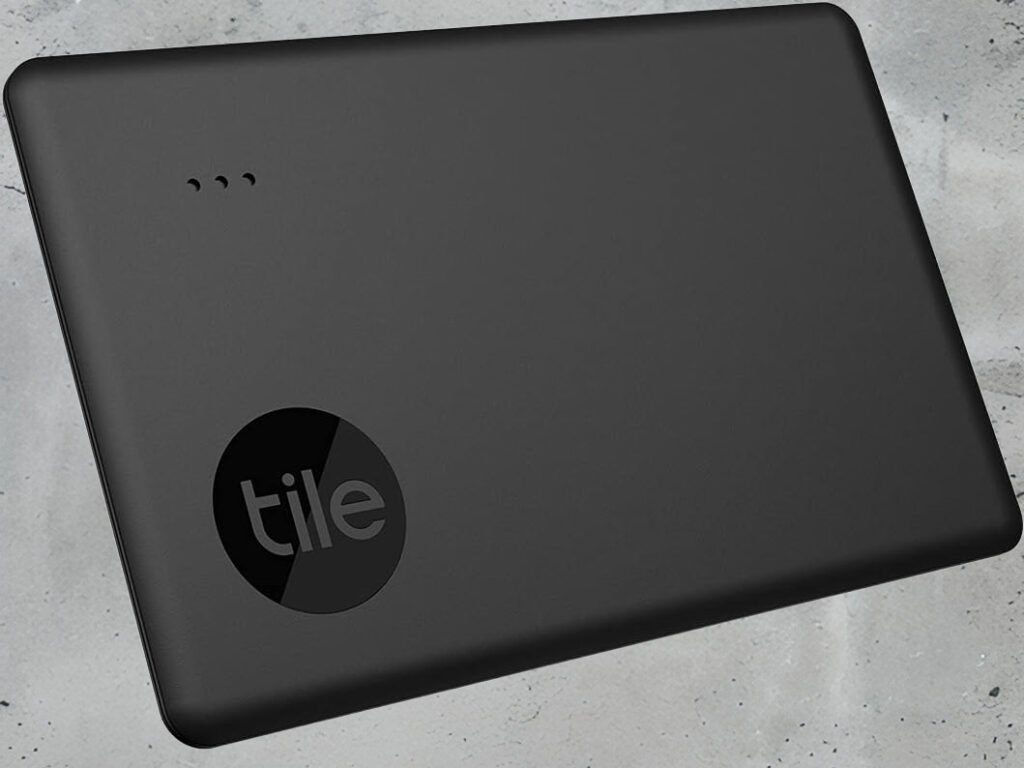
Tile Slim
The Tile Slim is a popular choice for those looking to keep their wallet trackable without adding bulk. As the name suggests, it’s super slim, designed to easily slip into any wallet pocket. It connects to your phone via Bluetooth and has a decent range of around 200 feet. Plus, you can use the Tile app to see the last known location of your wallet if you’re out of range.
- Pros: The slim design makes it ideal for wallets, and the range is solid for everyday use. It also has a replaceable battery, so you don’t have to throw it out when the battery dies.
- Cons: Since it’s Bluetooth-based, it lacks the precision of GPS trackers, especially when your wallet is farther away. You’ll need to be within its Bluetooth range to get the best results.
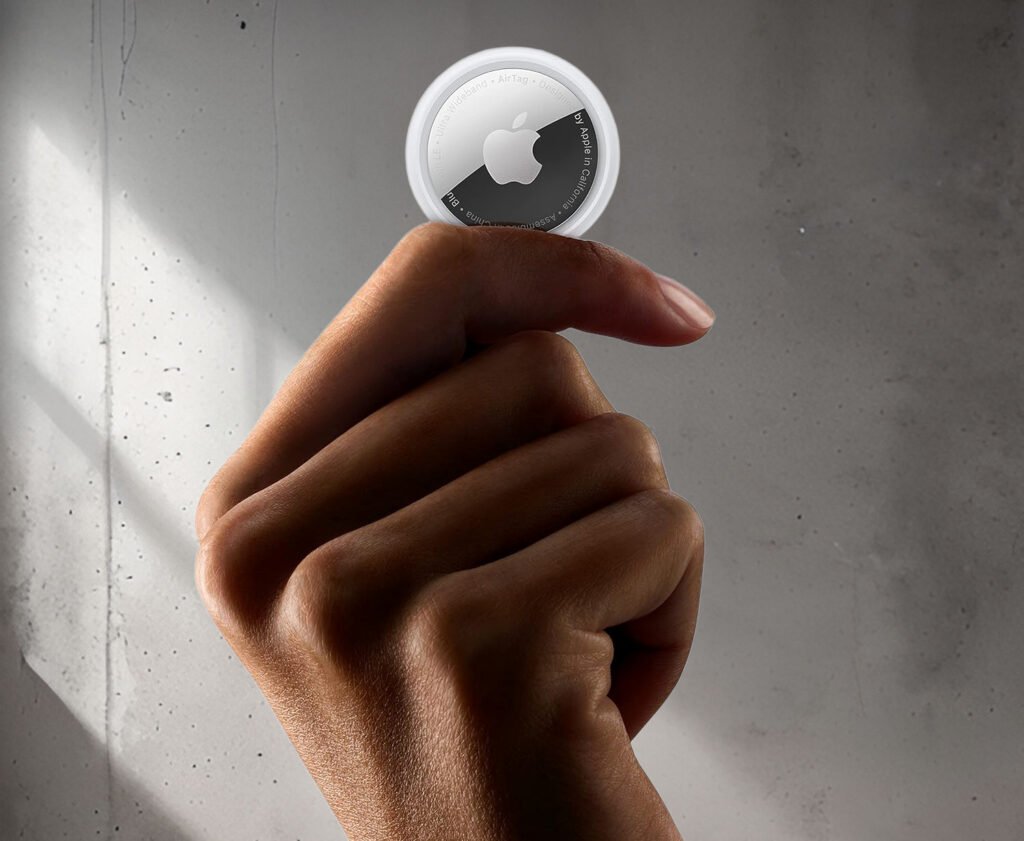
Apple AirTag
The Apple AirTag is a powerful option for anyone deep in the Apple ecosystem. It uses Apple’s Find My network, which taps into millions of devices worldwide to help you track down your wallet with incredible accuracy. The AirTag is compact, making it easy to slip into any wallet, and it offers precise location tracking, especially with newer iPhones that have ultra-wideband (UWB) technology.
- Pros: The precision is top-notch, thanks to the vast Find My network and UWB support. It integrates seamlessly with Apple devices, so setting it up and tracking your wallet is easy and intuitive.
- Cons: Unfortunately, it’s not as useful for Android users, since most of the features are Apple-specific. If you’re not using an iPhone, you’re better off looking for alternatives.
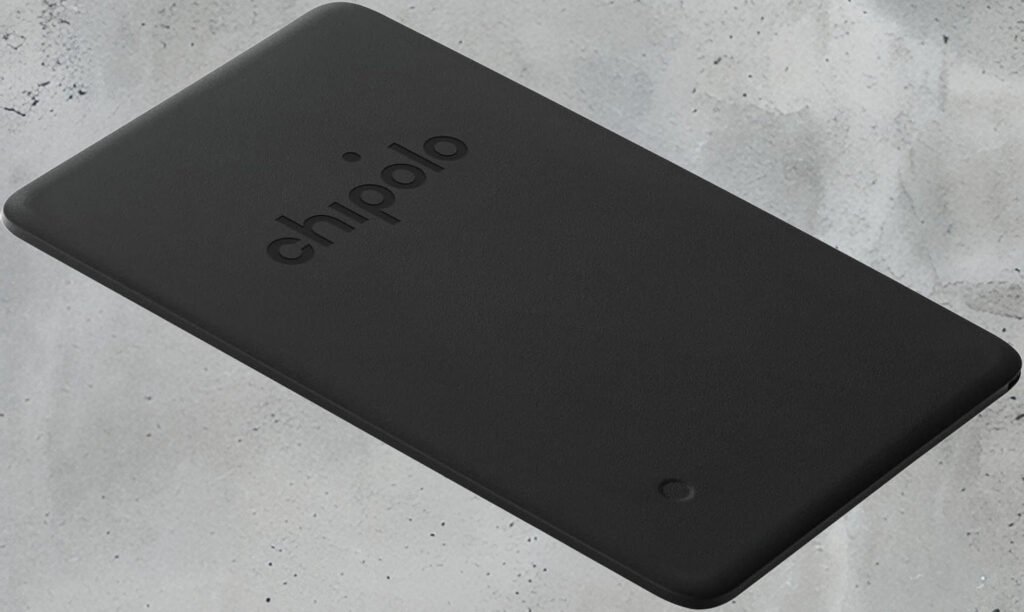
Chipolo Card
The Chipolo Card is designed for those who want a simple and effective tracker for their wallet. It’s about the size of a credit card, so it fits perfectly into your wallet without adding much bulk. One of its standout features is the loud alarm, which makes it easier to find your wallet when it’s nearby. The Chipolo Card also comes with a replaceable battery, so you won’t need to replace the entire tracker when the battery runs out. It is available in virions
Chipolo Card – works with Chipolo app
Chipolo Card Spot – works with Apple Find My Device App
Chipolo Card Point- works with Android Find My Device App
- Pros: The loud alarm is a huge plus, especially if you tend to misplace your wallet around the house. The replaceable battery adds convenience, extending the life of the tracker.
- Cons: The app is a bit limited compared to other wallet trackers, offering fewer features and options, which might be a drawback if you’re looking for more advanced functionality.
Ekster Tracker Card
The Ekster Tracker Card is a unique option, especially for those who prefer eco-friendly solutions. It’s solar-powered, meaning you don’t need to worry about replacing or recharging batteries as long as it gets some sunlight. The tracker is designed to fit perfectly into Ekster’s wallets, which come with dedicated tracker slots, but it can work with any wallet that has space for it. This card works with Android. For Apple users there is an alternative version called Finder Card and it comes with a charging cable.
- Pros: The solar-powered feature is a big plus, offering convenience and sustainability. It’s also a great fit for wallets that have tracker slots, making it an easy addition to your everyday carry.
- Cons: To keep it functioning well, it needs regular exposure to direct sunlight. If you tend to keep your wallet in your pocket or bag most of the time, it might not charge as efficiently. This does not affect Finder card as it has the charging cable.
How to Choose the Best Wallet Tracker
When shopping for a wallet tracker, there are a few key factors to consider to make sure you pick the right one for your needs.
Size is important—since it’s going in your wallet, you want something slim and unobtrusive. A bulky tracker can make your wallet uncomfortable to carry.
Battery life is another critical factor. Some trackers have replaceable batteries, while others are rechargeable or solar-powered. Think about whether you want the convenience of a long-lasting battery or if you’re okay with having to recharge or replace it every so often.
Range can vary depending on the type of tracker. Bluetooth trackers are best for close-range tracking, like finding your wallet around the house or nearby, with a range of about 200-400 feet. If you tend to lose your wallet in more distant places, you may want to consider a GPS tracker, which allows for tracking over a much wider area but often requires a subscription.
Finally, check app compatibility—make sure the tracker you choose works with your smartphone, whether you use iOS or Android. Some trackers, like Apple’s AirTag, work best within specific ecosystems, so it’s important to pick one that fits your devices.
Ultimately, Bluetooth trackers are ideal if you mostly misplace your wallet at home or nearby, while GPS trackers are better suited for those who want peace of mind when traveling or dealing with long-range situations.
Additional Features to Look For
When choosing a wallet tracker, it’s worth considering some extra features that can make it even more useful.
Geofencing is a handy feature that sends you an alert if you move too far away from your wallet. This can be especially useful for preventing you from accidentally leaving your wallet behind in public places.
Integration with smart home devices like Alexa or Google Assistant can add an extra layer of convenience. With this feature, you can use voice commands to find your wallet or check its location, making it easier to track down without having to open an app.
Lastly, look for water resistance and durability. Since your wallet can be exposed to various conditions, having a tracker that can withstand some moisture and rough handling ensures it will continue to work properly over time. These added features can help make sure your wallet tracker is both effective and reliable.
When it comes to choosing the best wallet tracker, there are a few key points to keep in mind. First, consider the size of the tracker to ensure it fits comfortably in your wallet. Battery life is also crucial—decide if you prefer a replaceable battery, a rechargeable option, or something solar-powered. The range of the tracker should match your needs, with Bluetooth being suitable for nearby tracking and GPS for wider coverage. Also, make sure the tracker’s app is compatible with your smartphone.
Additional features like geofencing, smart home integration, and water resistance can enhance the tracker’s usefulness and durability.
Using a wallet tracker can save you a lot of stress and hassle by helping you keep track of your valuables. It’s a simple yet effective way to ensure your wallet is always within reach, offering peace of mind wherever you go.
Adrenaline junkie with a passion for exploring off-the-beaten-path destinations and finding unique ways to stay active. Expect stunning scenery, challenging workouts, awesome travel tips and a whole lot of fun. Let’s get sweaty and explore the world together!


